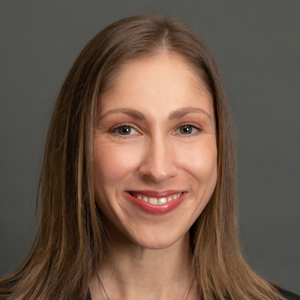In the Words of Direct Care Workers: Farah Germain
As part of our new report on the direct care workforce, we’ve been speaking with direct care workers from around the country, drawing on their wisdom and experience to help inform the future of this sector. This interview is with Farah Germain, a Home Health Aide at JASA in Brooklyn, New York. She has been a direct care worker for 15 years.
 ON WHY SHE DECIDED TO BECOME A HOME HEALTH AIDE
ON WHY SHE DECIDED TO BECOME A HOME HEALTH AIDE
“I grew up taking care of sick family members. First my aunt, who was very sick when I came to this country from Haiti. Then it was my grandmother, and then my dad. I really like taking care of people.
When I first finished up school, I got a job in a clothing store, but it wasn’t me. So I took a class to become a home health aide and started doing this work in 2005, and right away I loved it. But then, about five years ago, I decided to go to school for hotel management and was working as a housekeeping manager at a hotel. The job was good and the pay was okay, but I didn’t like it. It just didn’t feel like me. Everybody said I was crazy to throw away a job that paid twenty-something dollars an hour and make half as much money going back to home care. I told them, ‘Yeah, I know, but they say don’t do a job because of the money, do it because you love it.’ You really have to have the heart for this job to stay in it.”
ON WHAT SHE FINDS MOST CHALLENGING IN HER ROLE
“I’m a single parent working six days a week, and I don’t spend enough time with my kid. As home health aides, we work too hard, we’re dealing with too much stress with the client, and we also have to deal with family members, and we’re not getting paid for how hard we work. That’s the problem. You have to pay your bills. You have to take care of your family. And if you are working hard six to seven days a week and you still can’t cover your bills, then why are you working?”
ON HER RELATIONSHIP WITH HER CLIENTS
“Some clients will make you hate this job, but others will make you love it because they appreciate you helping them. I’ve never had a problem with clients. I’m with my current client six days a week and have been with him for almost three years now. I’m a very caring and patient person, but it is especially easy with him. If you don’t know him well you might not expect that, because he doesn’t always get along with other aides. But I know what he likes and what he doesn’t like. He likes to get his food at a certain time, and to make sure everything is on time. He doesn’t like to be bothered when it’s nap time, so I don’t talk to him then or tell him if the phone is ringing. He doesn’t like for a lot of people to talk to him, but me and him, we have conversations all the time. We watch TV together and talk about it, and he tells me about his childhood when he was a kid. He tells me everything.”






